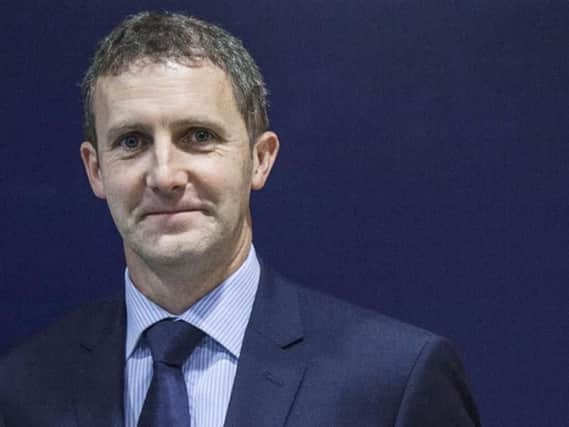Matheson accused of 'betrayal' over undercover policing


A review by HM Inspectorate of Constabulary in Scotland (HMICS), which was published yesterday, found undercover officers attached to the Metropolitan Police’s former Special Demonstration Squad (SDS) and the now defunct National Public Order Intelligence Unit (NPOIU) were deployed in Scotland at various points between 1997 and 2010, including during the G8 summit at Gleneagles in 2005.
The report said notorious undercover officer Mark Kennedy, a member of the NPOIU, visited Scotland on at least 17 occasions and carried out “multiple activities” on each visit.
Advertisement
Hide AdAdvertisement
Hide AdIn 2015, the Metropolitan Police issued an “unreserved apology” to a number of women tricked into relationships by undercover officers, including Kennedy.
In a statement to the Scottish Parliament, Mr Matheson said setting up a Scottish inquiry would not be in the public interest.
The minister had asked HMICS to carry out its review in 2016 after then home secretary Theresa May refused to extend the judge-led Undercover Policing Inquiry (UCPI) to Scotland.
Mr Matheson said: “I appreciate there is some legitimate public concern about undercover policing activity in Scotland, and I took those concerns into account in reaching a decision.
"However, on balance, I consider that establishing a separate Scottish inquiry is not a proportionate response.
“There is no evidence of any systemic failings within undercover policing by Scottish police. I have again written to the Home Secretary asking her to reconsider extending the terms of reference of the Undercover Policing Inquiry to allow it to look at the activity of English and Welsh police units in Scotland.”
The Campaign Opposing Police Surveillance (Cops) said the Justice Secretary’s decision was a “spineless betrayal” of victims.
Tilly Gifford, an environmentalist who is seeking to bring a judicial review in an attempt to force a Scottish inquiry, said: “Throughout the [UCPI], those in Wales and England who have suffered extreme abuses have the potential to have light shed on these sexual, emotional and physical violations carried out by the state.
Advertisement
Hide AdAdvertisement
Hide Ad“We know that these abusive relationships also happened on Scottish soil. At the G8 many English undercovers were operating in Scotland, but today we hear that there will be no investigation into miscarriages of justice.”
She added: “Our process of legally challenging this decision will continue.”
Campaigner Jason Kirkpatrick, who believes he was spied on by Kennedy during the G8 summit, said: “Clearly what the HMICS has done is cherry picked the least controversial issues, while trying to sweep admitted human rights abuses done by English officers in Scotland under the rug.
“When the HMICS admits that scandalised English officers like Mark Kennedy were in Scotland 17 times, I can’t understand why Scotland wouldn’t want to look into such abuses that the Metropolitan Police force admitted to way back in 2015. Where is the justice?”
According to the HMICS report, the SDS deployed 11 officers to Scotland between 1997 and 2007, while there were nine officers sent across the border from the NPOIU between 2003 and 2010. With the exception of the G8 summit, where undercover operatives acted with the full knowledge of Tayside Police, it appeared Scottish forces were “not sighted” on the deployments.
Since the creation of Police Scotland in 2013, there has been 50 undercover operations carried out by Scottish officers, focussing on drug dealing and child sexual exploitation, the report said.
There was no evidence that undercoverofficers from Police Scotland had infiltrated social justice campaigns or had operated “outwith the parameters of the authorisation”.
The report was published as the Scottish Police Authority (SPA) announced Police Scotland’s chief constable, Phil Gormley, had resigned with immediate effect. Mr Gormley was head of Special Branch at the Met in 2006 – the division which had responsibility for the SDS.